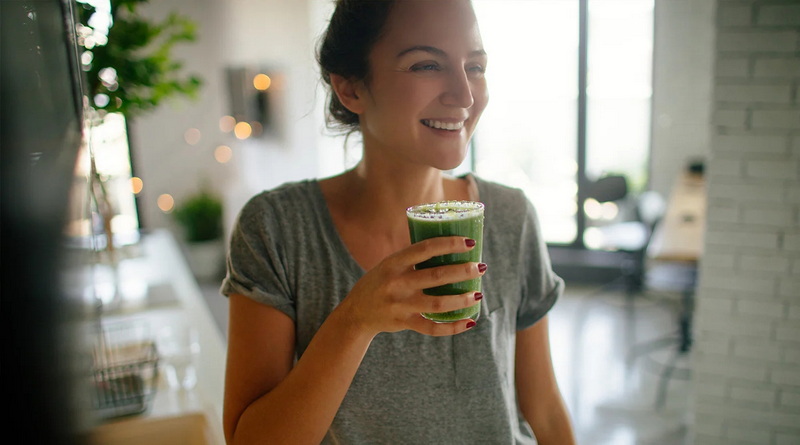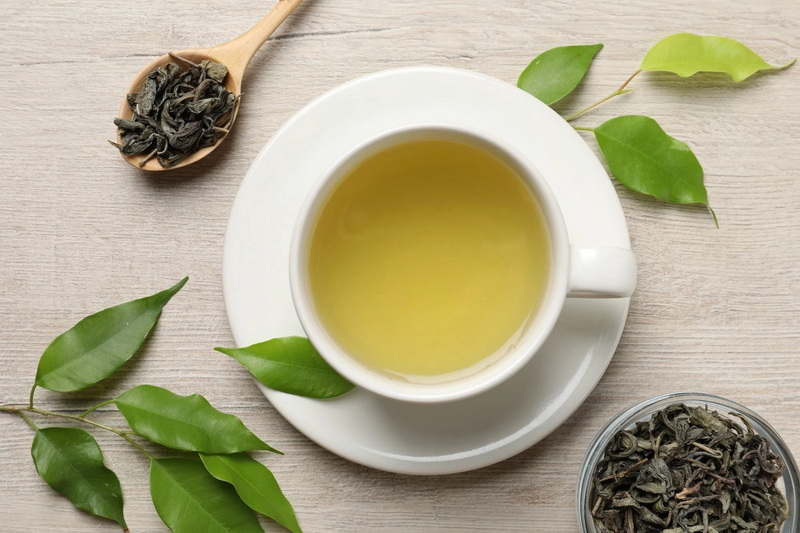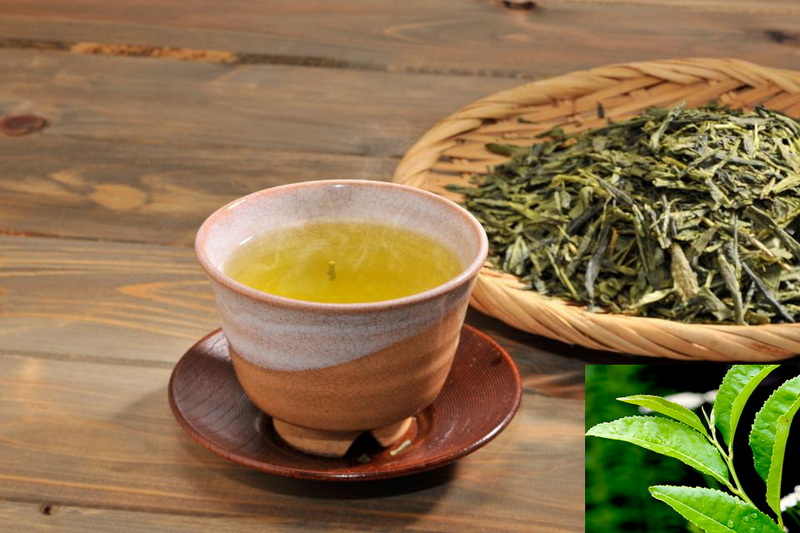Content Menu
● Understanding Green Tea and Its Extract
● Composition of Green Tea Extract
>> Key Components
● How Much EGCG Is in Green Tea Extract?
>> Comparison Table: EGCG Content
● Health Benefits of Green Tea Extract
>> Additional Benefits
● How to Use Green Tea Extract
● Potential Side Effects and Considerations
● Comparing Green Tea and Green Tea Extract
● Cultural Significance and Historical Context
● Conclusion
● FAQ
>> 1. What is the difference between green tea and green tea extract?
>> 2. How much EGCG should I consume daily?
>> 3. Can I take green tea extract if I am sensitive to caffeine?
>> 4. Are there any side effects associated with green tea extract?
>> 5. How does brewing time affect the catechin content in green tea?
● Citations:
Green tea has been celebrated for centuries, not only for its refreshing taste but also for its numerous health benefits. One of the most potent forms of green tea is green tea extract, which is derived from the leaves of the Camellia sinensis plant. This article explores the composition of green tea extract, particularly focusing on the amount of active compounds it contains compared to brewed green tea.

Understanding Green Tea and Its Extract
Green tea is made from unfermented leaves, which helps to preserve its natural antioxidants, particularly polyphenols. Among these, epigallocatechin gallate (EGCG) is the most studied and recognized for its health benefits. When we refer to green tea extract, we are talking about a concentrated form that captures these beneficial compounds in higher quantities than what is typically found in brewed green tea.
Composition of Green Tea Extract
The concentration of active ingredients in green tea extract can vary significantly based on several factors, including:
- Type of Green Tea: Different varieties of green tea contain varying levels of catechins.
- Processing Method: The extraction method (such as solvent extraction or supercritical fluid extraction) influences the concentration of catechins and other compounds.
- Quality of Leaves: The age and quality of the leaves used can also affect the final composition.
Key Components
1. Catechins: These are antioxidants that play a crucial role in many health benefits associated with green tea. The major catechins include:
- Epigallocatechin gallate (EGCG)
- Epicatechin (EC)
- Epicatechin gallate (ECG)
- Epigallocatechin (EGC)
2. Caffeine: Green tea also contains caffeine, although in lower amounts compared to coffee.
3. L-theanine: An amino acid that can promote relaxation without drowsiness.
How Much EGCG Is in Green Tea Extract?
The amount of EGCG in green tea extract can be substantial. For example:
- A typical cup of brewed green tea (about 240 ml) contains approximately 50-100 mg of EGCG.
- In contrast, a standard dose of green tea extract may contain anywhere from 250 mg to 500 mg or more per serving, depending on the product's formulation and concentration.
Comparison Table: EGCG Content
| Source | Approximate EGCG Content |
| Brewed Green Tea (240 ml) | 50-100 mg |
| Green Tea Extract (1 capsule) | 250-500 mg |
Health Benefits of Green Tea Extract
The high concentration of catechins, especially EGCG, contributes to various health benefits:
- Antioxidant Properties: Protects cells from oxidative stress and free radical damage.
- Weight Management: May aid in fat oxidation and weight loss by boosting metabolism.
- Heart Health: Can improve cholesterol levels and reduce blood pressure.
- Brain Health: Supports cognitive function and may protect against neurodegenerative diseases.
Additional Benefits
1. Cancer Prevention: Research indicates that EGCG may inhibit cancer cell growth and reduce tumor size in various cancers, including breast and prostate cancer[1][8].
2. Anti-inflammatory Effects: The polyphenols in green tea have been shown to reduce inflammation markers in the body, which could help manage conditions like arthritis[4][10].
3. Dental Health: Green tea extract has antibacterial properties that may help prevent dental cavities by inhibiting the growth of bacteria responsible for tooth decay[1][10].
4. Skin Health: Due to its antioxidant and anti-inflammatory properties, green tea extract is often used in skincare products to protect against UV damage and improve skin elasticity[4][12].
5. Metabolic Benefits: Studies suggest that green tea extract can enhance metabolic rate and fat oxidation during exercise[5][11].

How to Use Green Tea Extract
Green tea extract is available in various forms, including capsules, powders, and liquids. Recommended dosages typically range from 250 mg to 500 mg per day. It is advisable to take it with food to enhance absorption and minimize potential gastrointestinal discomfort.
Potential Side Effects and Considerations
While green tea extract is generally safe for most people when consumed in moderation, excessive intake can lead to side effects such as:
- Liver toxicity
- Gastrointestinal issues
- Increased heart rate
- Insomnia due to caffeine content
It is crucial to adhere to recommended dosages and consult a healthcare provider before starting any new supplement regimen, especially if you have underlying health conditions or are taking medications.
Comparing Green Tea and Green Tea Extract
Understanding the differences between brewed green tea and green tea extract can help individuals choose the right option for their needs:
| Aspect | Brewed Green Tea | Green Tea Extract |
| Form | Brewed leaves | Concentrated extract (capsule/liquid) |
| Concentration | Lower concentration of active compounds | Higher concentration of active compounds |
| Caffeine Content | Variable, depending on brewing | Often standardized |
| Antioxidant Levels | A blend of natural antioxidants | Enhanced levels due to concentration |
| Health Benefits | Hydration, modest antioxidant intake | Potent antioxidant source |
| Absorption Rate | Slower absorption | Faster absorption |
| Convenience | Requires brewing | Easy to consume |
Cultural Significance and Historical Context
Green tea has deep roots in various cultures around the world. Originating from China over 4,000 years ago, it has been an integral part of traditional medicine practices. In Japan, the ceremonial preparation of matcha—a powdered form of green tea—has been practiced for centuries as part of Zen Buddhist rituals.
In addition to its cultural significance, scientific interest has surged over recent decades as research continues to uncover the myriad health benefits associated with regular consumption. This has led to an increase in both consumption rates and product availability globally.
Conclusion
Green tea extract offers a concentrated source of beneficial compounds found in regular green tea, particularly EGCG. Understanding how much extract is equivalent to brewed tea can help individuals maximize their health benefits while being mindful of potential side effects. With its wide-ranging health benefits—from weight management to cancer prevention—green tea remains a powerful ally in promoting overall wellness.

FAQ
1. What is the difference between green tea and green tea extract?
Green tea is made by steeping the leaves in water, while green tea extract is a concentrated form that contains higher levels of catechins and other beneficial compounds.
2. How much EGCG should I consume daily?
Most studies suggest that consuming between 250 mg to 500 mg of EGCG per day can provide health benefits without adverse effects.
3. Can I take green tea extract if I am sensitive to caffeine?
Yes, many green tea extracts are available in caffeine-free forms; however, it's essential to check the label before purchasing.
4. Are there any side effects associated with green tea extract?
Potential side effects include liver toxicity at high doses, gastrointestinal discomfort, and increased heart rate due to caffeine content.
5. How does brewing time affect the catechin content in green tea?
Longer brewing times typically increase catechin extraction; however, over-brewing can also lead to bitterness and astringency.
Citations:
[1] https://pmc.ncbi.nlm.nih.gov/articles/PMC6412948/
[2] https://www.canada.ca/en/health-canada/services/food-nutrition/public-involvement-partnerships/notice-modification-list-permitted-supplemental-ingredients-permit-use-green-tea-extract-supplemental-ingredient-foods/document.html
[3] https://staarlabs.com/blogs/news/green-tea-vs-green-tea-extract
[4] https://www.newdirectionsaromatics.com/blog/all-about-green-tea-extract/
[5] https://pubmed.ncbi.nlm.nih.gov/38031409/
[6] https://www.webmd.com/vitamins/ai/ingredientmono-960/green-tea
[7] https://www.drugs.com/npp/green-tea.html
[8] https://pmc.ncbi.nlm.nih.gov/articles/PMC2855614/
[9] https://pubmed.ncbi.nlm.nih.gov/28655517/
[10] https://www.mountsinai.org/health-library/herb/green-tea
[11] https://www.nature.com/articles/srep12015
[12] https://www.innerbody.com/best-green-tea-extract
[13] https://tigogreen.de/en/greentea-greentea-extract/






























